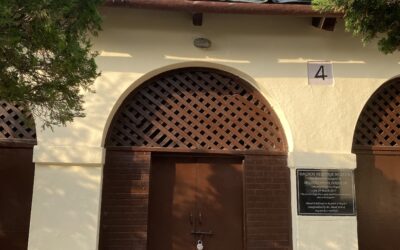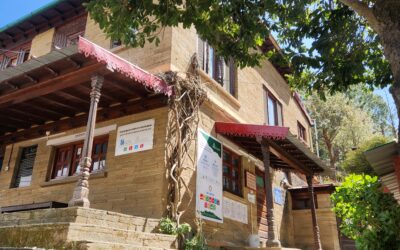Post the earthquake of 2001, Kutch has seen rapid industrialisation and urbanisation. This has accelerated more in the past decade. This has had a two-fold effect on the environment and on human relationships in the region. Alongside, the political climate of India, as of the world, has seen a sharp shift towards radical polarisation and discrimination on the basis of identity. Be it caste, sex, religion, age, gender or anything else. Pastoralism, the overarching way of life for a large community in Kutch, has also been under threat. The lifestyle of people who practise it, has changed.
These, along with the post-math of the Covid-19 pandemic, has led already complex developmental issues to not only increase but also mutate into heinous forms of violence. This region has never before seen this. In the everyday life, you will find people to be more angry and aggressive than before. This violence is physical, verbal, psychological, spiritual, cultural, financial and sexual. The brunt of which is being faced by the most vulnerable in society. Mainly women, adolescents and people from the lower caste communities.
Context
In the past nine months of my time working at Kutch Mahila Vikas Sangathan (KMVS), the most recurring word I have heard from my community of adolescents, mainly girls, is ‘permission’. Permission to use a smartphone, to go out, to stay out late, to study, to work. To marry at one’s will and according to one’s choice. To speak, to take decisions for themselves.
KMVS has been working with the youth in Kutch on gender sensitisation, perspective building, sexual and reproductive health rights, education, and livelihoods since a long time now. I thought of supporting it by working with young people on the fundamental premise of building one’s agency.
For young people to be able to voice out one’s anxieties and desires, and consequently begin dialogue as well as negotiations for changes from their household level.
About Theatre Of The Oppressed
I intend to do this through the praxis of Theatre of the Oppressed. Based on the ideas of Paulo Freire’s Pedagogy of the Oppressed Augusto Boal developed and pioneered this technique. Boal identifies that theatre has the potential to kindle social transformation. Forum theatre is one of the forms of Theatre of the Oppressed in which we pause the play at climax and encourage the audience (also known as spect-actor in this case, and not just a spectator) to replace one of the actors to complete the play in the way they think is right.
– Boal 1992

“Forum theatre methodology is useful with its dialogue, and enables the audience to dislodge deep-seated concerns, thereby prioritising sensitivity and respect for ending oppressions” – Sullivan & Parras, 2008
An integral part of Theatre of the Oppressed is that it is for the people, by the people. It starts with workshops that are conducted with the participants from the community that leads up to forming the forum. It is in these workshops that the participants, through various games, exercises, activities and discussions, immerse themselves in their own situations and critically reflect upon it. However, Boal stresses on not defining the oppression, rather encouraging each one to find it for, and by themselves.
“The theatre itself is not revolutionary: it is a rehearsal for the revolution.” – Boal 1994
My Experience Until Now
Since my own brief experiences with performance, I have been keen on exploring Theatre of the Oppressed as a medium of social communications and building agency. After reading about the related interventions online and speaking to practitioners, I began using performance exercises and theatre games in the capacity building workshops with my colleagues. It panned out in ways I hadn’t expected.
Last month, I also got a chance to attend the first of a three part residential workshop on Theatre of the Oppressed with Sambhaavnaa Institute of public policy and politics in Himachal Pradesh, to learn how to facilitate it on ground. Along with my colleagues, I have now identified communities and villages in Kutch where I will organise workshops with young people.
Its outcome will be forum plays in the community. Rather than being one-off events, these will be a part of a continuous process in respective places. This will build upon the collective consciousness after every performance. Eventually, I will train groups of people to continue this process themselves and perform in other communities with the support of KMVS.

I believe that through the workshops and ensuing theatre performances, young people will be able to open up about the discrimination they face. Along with that, it will enable them towards building confidence to speak up at the personal, household and societal level. And their community will become more sensitive and aware about the issues faced by women and young girls.
This was originally written for an application to Oxfam




0 Comments